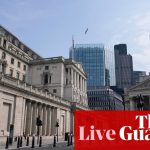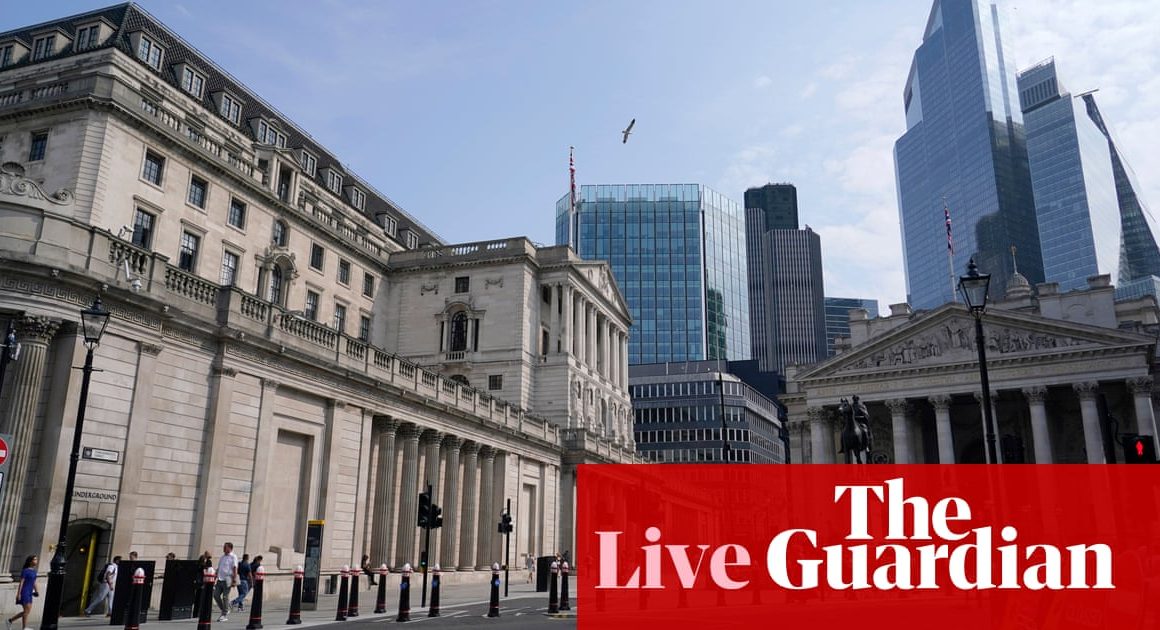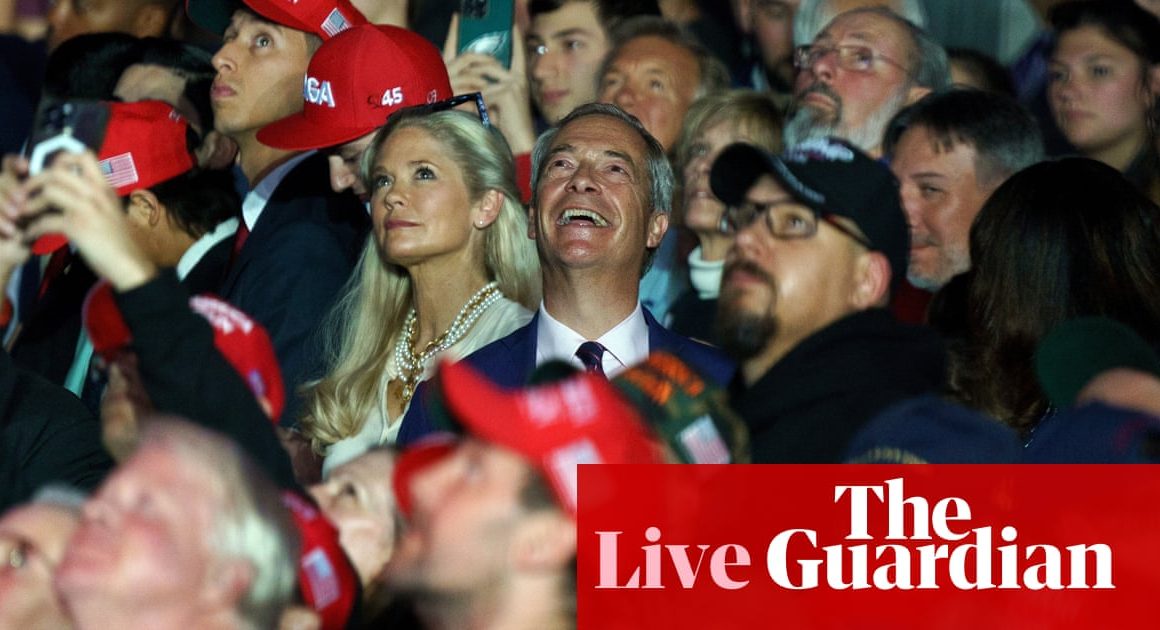To be a foreign diplomat serving in the US, charged with interpreting the country’s politics so it appears predictable and explicable to your political masters in Europe, is currently no easy job.
In a week where Donald Trump purported to address the nation as a self-aware, reflective and thoughtful Christian, before reverting to type with a slew of diatribes, and where he announced a vice-presidential pick who has openly stated he does not care about the future of Ukraine one way or the other, events have moved at a pace that even the most tapped-in of ambassadors and their staff would struggle to keep up with.
And that is before even considering the mounting crisis among the Democrats surrounding Joe Biden’s fitness for office.
In as far as they can assess a changing political landscape, European diplomats deduce that Trump, a convicted felon, is now increasingly likely to serve a second term – a prospect that could usher in a renewed period of US isolationism.
It leaves Europeans stranded broadly in three camps: optimists, notably the British and Germans, who say a Trump 2.0 presidency would be open to well-crafted European persuasion; sceptics such as the French president, Emmanuel Macron, who believe it is beyond time to Trump-proof Europe by strengthening its own security; and a third group, much larger now than in 2017 and personified by Hungary’s Viktor Orbán, who positively relish a Trump presidency and an end to the war in Ukraine, partly on Vladimir Putin’s terms.
The risk is that these European divisions would lead to an incoherence, making it easier for America to strike advantageous bilateral deals with individual nation states.
The US and Europe had a string of economic and security confrontations during the first Trump presidency, but the Ukraine war – which began in 2022 after he had left office – has injected a lethal ingredient capable of causing a deep fissure in transatlantic relations.
It is striking that the broad camp that believes Trump could be persuaded on Ukraine is refusing to see the vice-presidential nomination of JD Vance – a vocal critic of US assistance to Kyiv who has been praised by Russia’s foreign minister, Sergei Lavrov, as “a man of peace” – as the end of the argument with the would-be administration.
Speaking on the fringes of the Republican national convention, the British ambassador to Washington, Karen Pierce, said: “What we are talking about is not just security in Ukraine but for Nato’s partners. If Putin is seen to win in Ukraine, that emboldens China, which directly affects the US.
“It also sets back European security 30 years, right back to the fall of the Berlin Wall, and I don’t think anyone wants that, and I don’t think the next administration would like the whole of its time in office be dominated by that loss of Euro-Atlantic security,” she told an event hosted by Politico.
Urban Ahlin, the Swedish ambassador to Washington, was equally clear about what is at stake. “We realise Russia is an existential threat. If we don’t stop them in Ukraine, they will continue and will be a threat to the US. If it is about the costs, the cost will be much higher if we do not stop the Russians now.
“If the US would like to save money, the right way to do that is to help the Ukrainians win this war. If Russia wins this, it will embolden other countries … North Korea, Iran and China. It will not stop in Ukraine.”
Striking an optimistic note at a Chatham House event, Radosław Sikorski, the Polish foreign minister, said he had gleaned from his conversations with Republicans that there were “two schools of thought inside the party and one is that it’s not Ukraine that needs to be brought to the negotiating table but Russia”.
He said Putin was misjudging US politics in the way he had misjudged EU and Ukraine if he expected Trump to cave.
In what he described as the “not entirely unimaginable scenario” of Trump refusing to provide any further financial aid to Ukraine, Sikorksi said: “I think they will still sell us weapons for cash and then we will have a choice: do we increase our commitment or do we give up on Ukraine?”
He pointed out that in extremis there was $300bn (£230bn) of frozen Russian central bank assets sitting in Belgium that Europe could use to buy weapons for Ukraine – a move that would, however, face fierce resistance on the continent, not least from Christine Lagarde, the president of the European Central Bank.
Despite such voices of optimism, the reality is that there is no scenario between now and January, and no change in defence resources, that will not leave Europe dependent on the US for its security.
Mitch McConnell, the Senate minority leader, may have been booed at the Republican convention but this month he said he saw an “improved” political situation for Republicans when it came to Ukraine, noting that no party incumbents who voiced support for Kyiv had lost a primary election in this cycle.
Observers note that a further reason for optimism is that two of McConnell’s potential successors as Senate Republican leader – the minority whip John Thune and John Cornyn – have remained supportive of helping Ukraine. McConnell has even promised to make rooting out the Republicans’ “isolationist” streak in the Trump era as the top priority for his final two years in the Senate.
Vance’s nomination has unnerved Germany in particular. He has not only denigrated Germany’s dependence on the US defence shield but also attacked the nation’s economic policies.
“You [Germany] are deindustrialising your own country while at the same time saying that Putin must be defeated at all costs,” he said at the Munich Security Conference in February. “If Putin must be defeated at all costs, then, dear German friends, stop deindustrialising your own country in the name of a ridiculous green energy policy.”
If a Trump administration does slap on trade tariffs as it has threatened, the reappointed European Commission president, Ursula von der Leyen, already has a counter-strategy ready, built around the importance of the single market to the US.
Total US investment in the EU is four times higher than in the Asia-Pacific region. EU foreign direct investment in the US is about 10 times the amount of EU investment in India and China together. A trade war would be disastrous for both sides.
The school of thought led by Macron argues that if the Trump-style populism is not to spread across Europe, it has to be contested, not flattered. That requires an unprecedented level of defence coordination across the continent.
Benjamin Haddad, a French MP close to Macron, wrote on X: “The nomination of JD Vance as VP is yet another example: Trumpism has definitively triumphed among the Republicans, and along with it nationalism, rejection of alliances (starting with Nato) and support for Ukraine, protectionism. The conservatism of Reagan and Bush is dead and buried.”
Arguing that Biden, too, had been guilty of implementing a series of isolationist policies to the detriment of Europe, Haddad warned: “It will be worse after him. Trump’s lead in the polls, the underlying trends among post-Biden Democrats, and the violent polarisation of the American political debate must wake up Europeans. We are alone in a more competitive and fragmented world.”
The difficulty for the Macron school is that the French president’s own domestic political crisis reduces his influence over how Europe would respond to Trump. That has led many thinktanks to predict that Europe’s response would not be as united as the first time around, although potentially more is at risk.
Nathalie Tocci, the director of Italy’s International Affairs Institute, said this week: “It is not necessarily clear that the political effect of a second Trump administration will have the same unifying impact on Europe as eight years ago. It is a far more politically fragile Europe.
“We have been having the Putin-Trump conversation for almost a year now. How are we going to coordinate ourselves? How are we going to avoid a rather unseemly show in which different Europeans flock to Washington to kiss the ring.
“Do we have a strategy? It is the kind of thing that does not require a lot of preparation. To the best of my knowledge, that is not there.”










